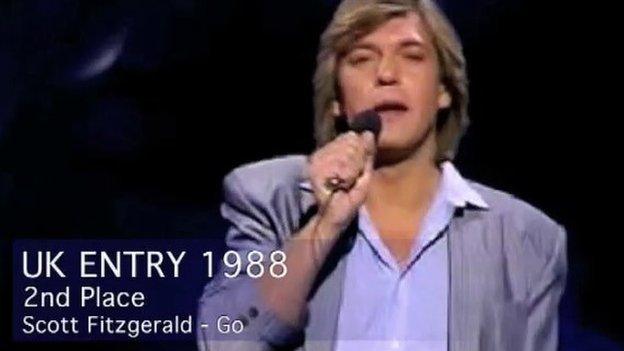Seeing a UFO in Glasgow inspired my Eurovision song
- Published
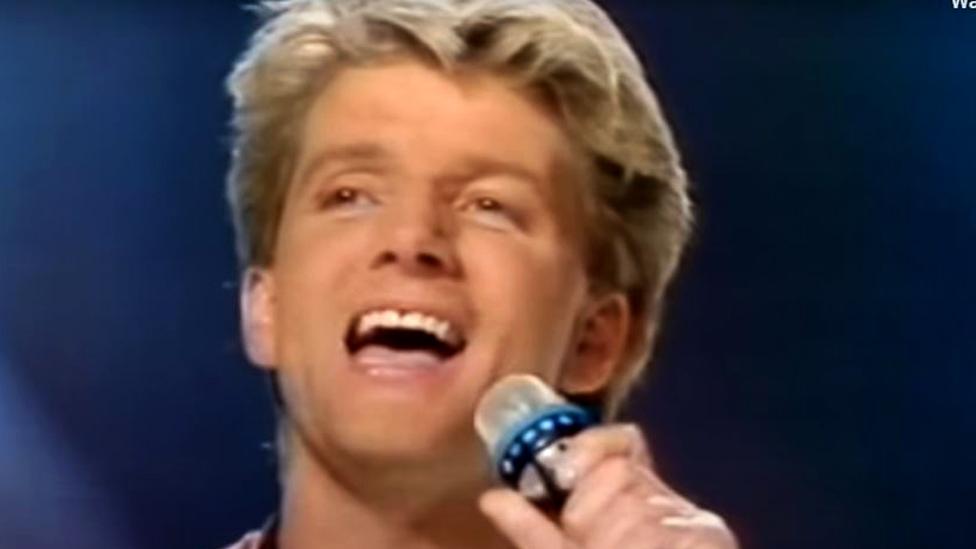
Rikki Peebles singing at Eurovision in 1987
Many of Eurovision's performances have been described as out of this world.
And last year's near-win by Sam Ryder, who sang Space Man, brought the 2023 final to Liverpool.
But Scots singer-songwriter Rikki Peebles was on the trend decades before.
He represented the UK in 1987 with a song inspired by his sighting of a UFO in his home city of Glasgow.
"All my adult life I have had an affinity with all things UFO, not of this world," Peebles said.
"It was about 1984 and I was in my car driving on the new M8 motorway. I sat at a junction after coming off .
"I looked up and I saw this massive light in the sky but it moved from my left, right across my vision to the right and then slowly disappeared.
"I thought I had to report this to authorities. I did and the next day the same thing had been seen over parts of Wales. I knew it wasn't just me. This was something not of this earth."
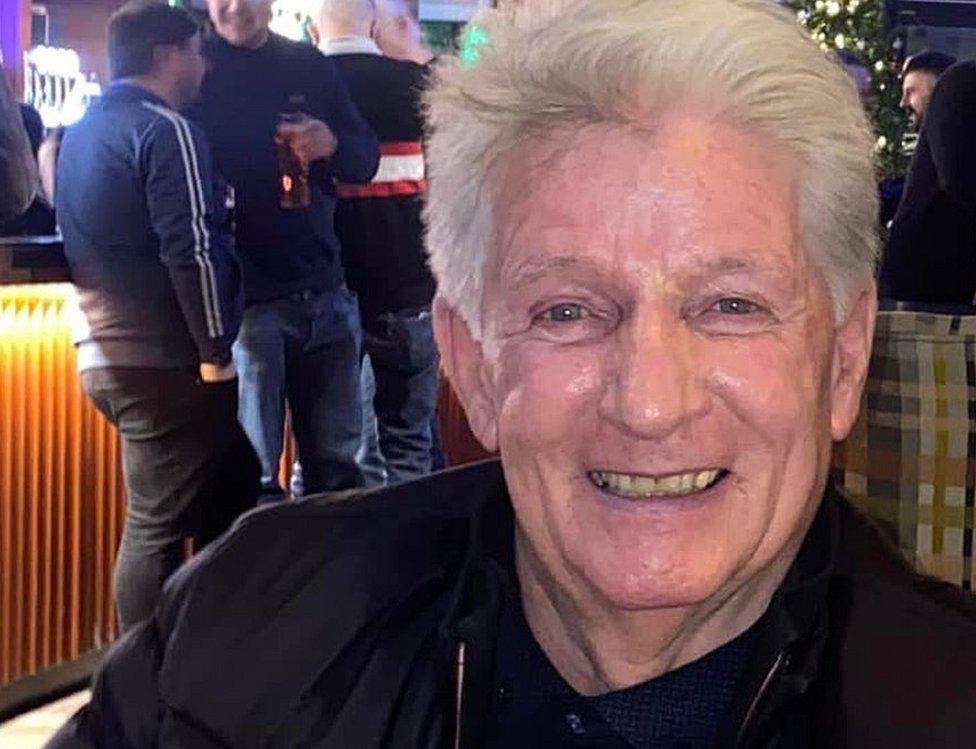
Rikki Peebles works as a taxi driver now
The experience inspired Peebles to write a song. He had been signed by a small independent music label and was putting an album together after releasing several singles in Europe.
He was also writing songs for Scottish pop group Middle of the Road (who famously sang Chirpy Chirpy Cheep Cheep, written by Lally Stott).
The 67-year-old told BBC Radio Scotland's Drivetime programme that he knew nothing about Eurovision until he walked into the studio one day.
He said: "I was recording an album at the time. One day a staff member came in and said one of my songs had been put forward for Eurovision. I didn't know.
"Then they contacted me and said the song was through to the last 60. It's strange but I knew right then that this song would go the full road, I could feel it."
It got to the last 20, then the last 12. And then Only The Light became the UK's official entry.
Peebles walked on the stage at the final of the Eurovision Song Contest in Brussels just after discovering he was joint favourite to win - along with the Irish entry sung by Johnny Logan.
Olympic Games
He tried to soak up the whole Eurovision experience.
"Eurovision then, I imagine, was on par with going to an Olympic Games," he said.
"You are thrust into all these countries with so many people involved. You don't have much time to make friendships as you are so wrapped up in the week leading in to the performance.
"But it was an amazing feeling of being elevated from an ordinary person and into this world of Eurovision."
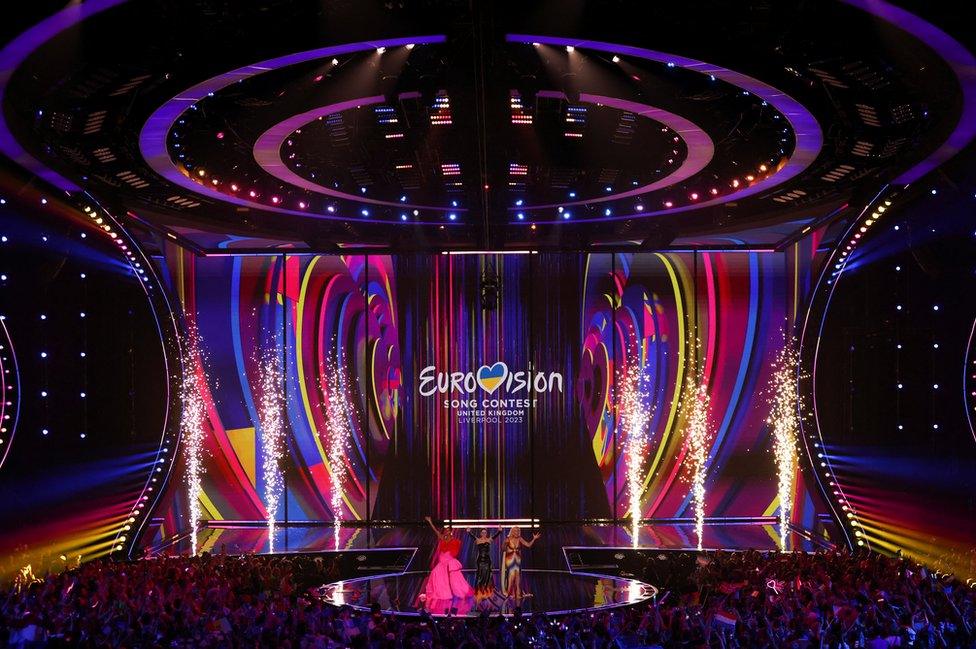
The stage is set in Liverpool for the Eurovision final on Saturday
History was made in Brussels that night but sadly not for Rikki Peebles.
Only The Light came 13th with 47 points.
The other favourite, Hold Me Now by Johnny Logan won with 172 points. This made him the only artist to have won the contest twice, after his 1980 winner What's Another Year.
Logan went on to win a third time as the composer of Linda Martin's winning entry Why Me? in 1992.
Peebles is now retired from music and works as a cabbie in Glasgow.
Scotland and Eurovision
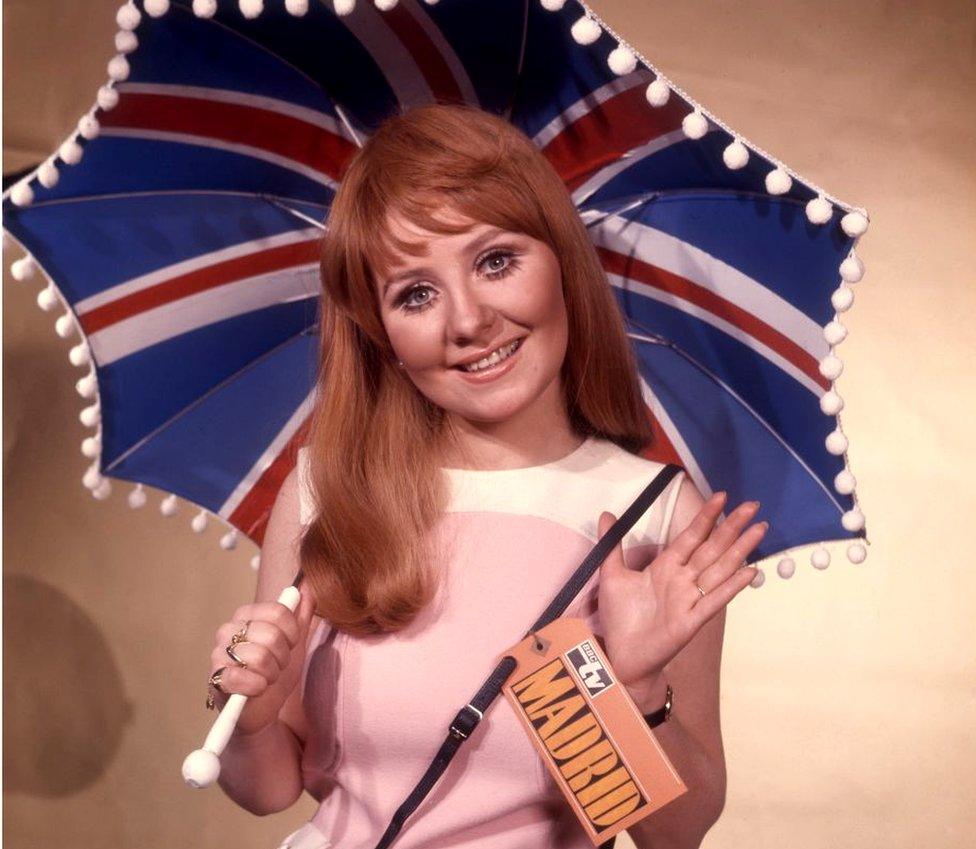
Glaswegian singer Lulu won the contest in 1969
Rikki Peebles is not the only Scottish link to Eurovision.
This small nation has had a hand in many aspects of the contest over the years.
The last Scot to represent the UK was Scott Fitzgerald, who came within a point of beating Celine Dion to the title in 1988.
Before Rikki Peebles, in a strange coincidence, the two previous Scottish entrants played together as children in the east end of Glasgow.
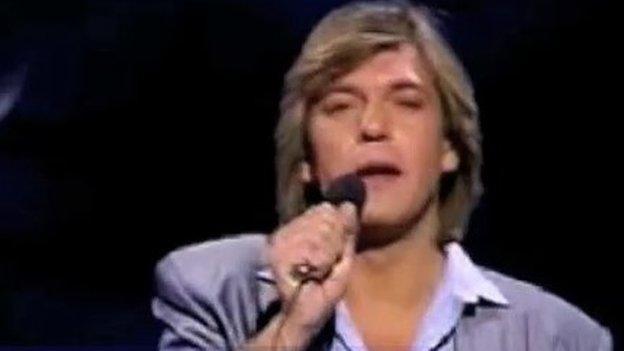
Scott Fitzgerald played with Lulu when they were children, in a tenement back court in Glasgow
One of them, Marie Lawrie, grew up to be Lulu, who won the competition in 1969 with Boom Bang-a-Bang.
Almost 20 years later wee Billy McPhail, who says he used to play with Lulu in a tenement back court, represented the UK under his stage name Scott Fitzgerald.
In 1966, Scottish traditional singer Kenneth McKellar was the UK entry for the contest in Luxembourg. Despite donning a kilt for the occasion, A Man Without Love placed a disappointing ninth out of 18 entries.
In 1967 the UK celebrated the first of its five Eurovision victories with Sandie Shaw's Puppet on a String. The success of the song was in no small part due to its writer, Govan-born Bill Martin.
Martin also wrote the 1968 UK entry Congratulations, performed by Cliff Richard.
In 1972, Scotland hosted the competition. Monaco, the previous winners, were unable to host, so the contest was held in Edinburgh instead.
The Usher Hall was the venue, with Edinburgh Castle the location for the all-important juries.
Paisley songwriter David Sneddon, winner of BBC's Fame Academy in 2002, wrote the Greek entry Better Love for the 2019 Contest.
And in 2020 Scotland hosted the Eurovision Song Contest again - on screen, that is.
The Netflix film Eurovision Song Contest: The Story of Fire Saga, starring Will Ferrell and Rachel McAdams, featured Edinburgh as host city, confusingly using Glasgow's Hydro as the concert venue.
Related topics
- Published11 May 2023
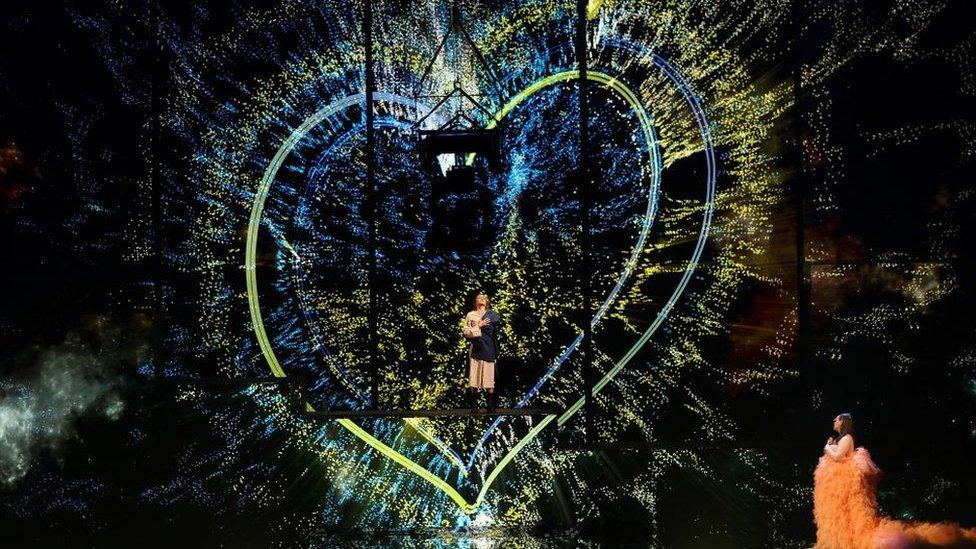
- Published1 July 2020
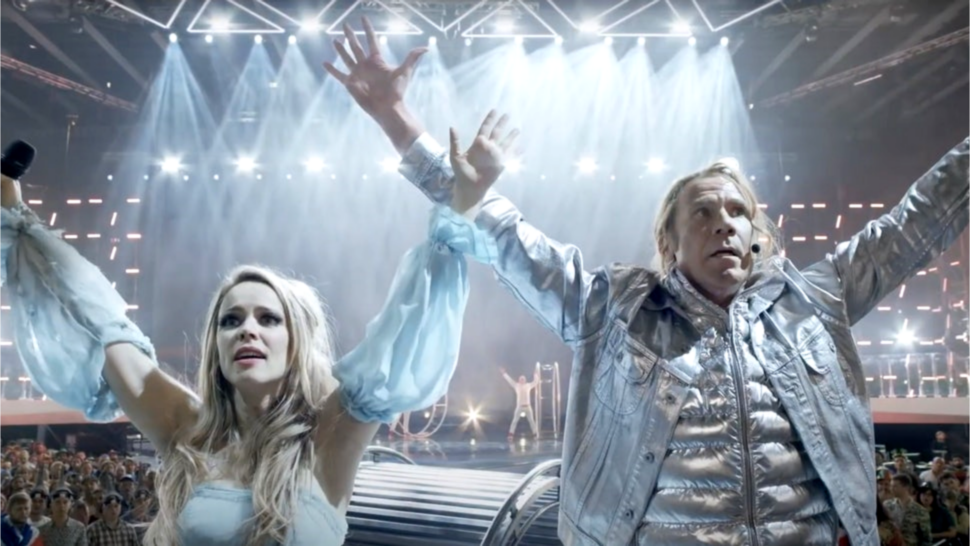
- Published9 May 2014
